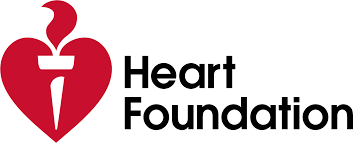Baby and Child Health
What is Baby's Health?
The health of infants, defined as children from birth to one year, is a critical area of concern for parents, caregivers, and healthcare providers. During this period, infants undergo rapid growth and development, which lays the foundation for their future well-being. Here are some key aspects to consider when focusing on infant health:
Nutrition
- Breastfeeding: Recommended as the primary source of nutrition for the first six months.
- Formula Feeding: An alternative for those who can't or choose not to breastfeed.
- Solid Foods: Introduction around six months, with foods like rice cereal, pureed fruits, and vegetables.
- Hydration: Most infants get enough water from breast milk or formula, but consult a healthcare provider if you have concerns.
Growth and Physical Development
- Milestones: Track physical (rolling over, sitting up, crawling) and cognitive milestones.
- Regular Check-ups are important for monitoring growth, receiving vaccinations, and identifying developmental concerns.
Sleep
- Sleep Schedule: Infants sleep a lot but in short intervals. Sleep patterns usually become more predictable around 3-6 months.
- Safe Sleeping: Always put infants to sleep on their back in a crib with a firm mattress to reduce the risk of Sudden Infant Death Syndrome (SIDS).
Emotional and Social Development
- Attachment: Early bonding through feeding, cuddling, and responsive caregiving.
- Social Skills: Exposure to varied but non-stressful environments, people, and stimuli to help social development.
Safety
- Childproofing: Ensure the home environment is safe from hazards like sharp objects, electrical outlets, and choking risks.
- Car Safety: Always use a rear-facing, properly installed car seat when travelling.
Common Health Concerns
- Colic: Excessive crying can be a sign of colic; consult a healthcare provider for solutions.
- Diaper Rash: Keep the diaper area clean and dry.
- Infections: Ear infections, respiratory illnesses, and gastrointestinal issues are common. Consult a healthcare provider for diagnosis and treatment.
Immunisations and Medications
- Immunisations: Follow the recommended schedule for vaccinations.
- Medications: Always consult a healthcare provider before administering any over-the-counter medications.
Mental Health and Stimulation
- Playtime: Age-appropriate toys and activities to stimulate mental and physical development.
- Reading and Music: Good for cognitive and emotional development.
Parental Well-being
- Postpartum Depression: Affects both mothers and, indirectly, the baby; seek professional help if needed.
- Support Network: Parenting is challenging; don't hesitate to seek help from friends, family, or support groups.
Every infant is unique and may not fit into a "standard" pattern of development or behaviour. Always consult healthcare providers for diagnosis and treatment tailored to your baby’s needs.
What is Early Childhood?
Early childhood is a critical period of development that lays the foundation for a child's future growth and success. It encompasses the first five years of life, during which children undergo rapid physical, cognitive, and socio-emotional changes. These early years are a time of incredible potential and vulnerability, as the experiences and interactions children have during this period can have a lasting impact on their health, well-being, and future opportunities.
Areas of Early Child Development
Early childhood development encompasses several areas of growth and development, including physical, cognitive, social, and emotional development.
- Physical Development: This includes the development of a child's gross and fine motor skills, such as crawling, walking, running, jumping, and using fine motor skills for tasks like drawing and writing. Physical development also involves the development of the senses, such as vision, hearing, taste, smell, and touch.
- Cognitive Development: This includes the development of a child's thinking and problem-solving skills, memory, attention, language, and perception. Cognitive development also involves the development of executive function skills, such as planning, organising, and self-control.
- Social Development: This includes developing a child's ability to interact with others and form relationships. Social development includes understanding social norms and expectations, developing empathy and emotional regulation, and communicating effectively with others.
- Emotional Development: This includes the development of a child's emotional awareness, regulation, and expression. Emotional development includes learning to recognise and express emotions, developing empathy and social awareness, and managing and regulating emotions.
These areas of development are interconnected and influence each other. For example, physical development can affect cognitive and social development, and social and emotional development can affect cognitive development. Supporting children's growth and development in all these areas can promote healthy and well-rounded development.
Early Childhood Care
Early childhood care refers to providing care and support for young children, typically from birth to age five. This care may be provided by parents, family members, or caregivers in various settings, including home-based care, childcare centres, and early childhood education programs.
Importance of Early Childhood Care
- Early childhood care is critical for promoting healthy physical, cognitive, and socio-emotional development in young children.
- High-quality early childhood care can improve children's outcomes in various areas, including academic achievement, social-emotional development, and health and well-being.
- Early childhood care also plays an important role in supporting parents and caregivers, allowing them to work or pursue other activities while ensuring their children are safe and well-cared for.
High-Quality Early Childhood Care
- Developmentally appropriate: High-quality early childhood care is designed to meet the unique needs and abilities of young children, providing opportunities for play, exploration, and hands-on learning.
- Culturally responsive: High-quality early childhood care is responsive to the cultural backgrounds and experiences of the children and families being served.
- Safe and nurturing: High-quality early childhood care provides a safe and nurturing environment for children, with qualified and trained caregivers attentive to children's needs.
- Engaging and stimulating: High-quality early childhood care provides a range of learning experiences that are engaging and stimulating for children, promoting their cognitive, social-emotional, and physical development.
Who is Suitable for Early Childhood Care?
All young children, typically from birth to age five, should receive early childhood care. Early childhood care provides children with the support, care, and learning experiences to promote healthy physical, cognitive, and socio-emotional development. It is particularly important for children from disadvantaged backgrounds, as they may be at greater risk of experiencing adverse experiences that can negatively impact their development.
Parents, family members, or caregivers can provide early childhood care in various settings, including home-based care, childcare centres, and early childhood education programs. High-quality early childhood care meets children's unique needs and abilities, providing play, exploration, and hands-on learning opportunities.
By providing high-quality early childhood care, we can ensure that all children have the opportunity to reach their full potential and develop the skills they need to succeed in school and life.
Types of Early Childhood Care
- Home-based care: Refers to care provided by a family member, nanny, or another caregiver in the child's home. This type of care is often used by parents who work from home or have flexible work schedules.
- Childcare centres: Childcare centres provide care and educational programming for children from infancy to age five. They may operate full-time or part-time and may be licensed or unlicensed.
- Early childhood education programs: Early childhood education programs provide a range of learning experiences that promote cognitive, social-emotional, and physical development and help prepare children for success in school and life. These programs may take many forms, including preschools, Head Start, and home visiting programs.
What is Included in Early Childhood Care?
Early childhood care includes various services and support that promote healthy physical, cognitive, and socio-emotional development in young children. The specific components of early childhood care may vary depending on the setting and the age of the child but may include the following:
- Health and safety: Early childhood care providers should ensure that children are safe and healthy, with access to nutritious food, quality healthcare, and a safe and nurturing environment.
- Play-based learning: Play-based learning is a critical component of early childhood care, providing children with opportunities to explore, experiment, and learn through hands-on activities.
- Socialisation: Early childhood care programs provide children with opportunities to interact with peers and adults, promoting the development of social skills and positive relationships.
- Language and literacy development: Early childhood care providers should support language and literacy development by providing reading, storytelling, and conversation opportunities.
- Cognitive development: Early childhood care programs should promote cognitive development by providing problem-solving, critical thinking, and exploration opportunities.
- Creative expression: Early childhood care providers should support creative expression through activities such as music, art, and dance, promoting the development of creativity and self-expression.
- Parent and family support: Early childhood care providers should involve parents and families in their children's care and education, providing support and resources to help them support their child's development.
Early Childhood Care Clinic Purpose
Early childhood care clinics, or paediatric clinics, are critical in providing medical and developmental care for young children, typically from birth to age five. These clinics are designed to meet the unique needs of young children, who require specialised care and attention during this critical development period.
Early childhood care clinics promote healthy physical, cognitive, and socio-emotional development in young children. Paediatric clinics provide a range of services and support, including:
- Well-child exams: Paediatric clinics provide regular well-child exams to monitor children's growth and development and identify potential health concerns early on.
- Immunisations: Paediatric clinics provide vaccinations to protect children from infectious diseases, promoting healthy development and preventing illness.
- Developmental screenings: Paediatric clinics provide developmental screenings to assess children's cognitive, social-emotional, and physical development and to identify any areas of concern that may require further evaluation or support.
- Behavioural and mental health services: Paediatric clinics may provide behavioural and mental health services to support children's socio-emotional development and address mental health concerns.
- Parent and family support: Paediatric clinics may provide support and resources for parents and families, including parenting classes, education on child development, and referrals to community resources.
- Referrals to specialists: Paediatric clinics may refer children to specialists, such as developmental or paediatric specialists, for further evaluation or treatment.
When to Visit Paediatric Clinics?
Parents should take their children to paediatric clinics regularly for routine check-ups and screenings and any concerns about their child's health, development, or behaviour. It is recommended that children have regular well-child visits starting at birth and continuing until age 21.
Here are some general guidelines for when to visit paediatric clinics:
- Routine check-ups: Children should have routine check-ups at regular intervals, typically starting at birth and continuing at 1 month, 2 months, 4 months, 6 months, 9 months, 12 months, 15 months, 18 months, 2 years, and then annually until age 21.
- Immunisations: Children should receive immunisations according to the recommended schedule, which can vary depending on the specific vaccine and the child's age.
- Developmental concerns: If parents have concerns about their child's development, such as delayed speech or motor skills, they should discuss them with their paediatrician and may be referred for further evaluation or support.
- Behavioural or mental health concerns: If parents have concerns about their child's behaviour or mental health, they should discuss these concerns with their paediatrician, who may provide support or refer them to a specialist.
- Illness or injury: If a child becomes ill or is injured, parents should contact their paediatrician as soon as possible to schedule an appointment.
Immunisations
Why Do Children Need Immunisations?
Immunisations, or vaccinations, are vital to children's health as they protect against various severe and potentially fatal diseases. Parents and caregivers can help ensure their children stay healthy and avoid serious complications from preventable illnesses by vaccinating them.
Who is Suitable for Immunisations?
Children's immunisations are suitable for all children from birth to adolescence. The Centers for Disease Control and Prevention (CDC) recommends a schedule of vaccinations for children at specific ages, starting with the first hepatitis B vaccine at birth and continuing through adolescence with vaccines such as the human papillomavirus (HPV) vaccine. This schedule is designed to protect against the most severe and common diseases at the ages when children are most at risk.
All children should have access to preventive care and vaccinations, regardless of their socioeconomic status, race, or ethnicity. Parents and caregivers must work with their child's healthcare provider to ensure they are up-to-date on all recommended vaccinations.
Importance of Children’s Health & Immunisations
Children's health and immunisations are essential for several reasons:
- Protection against severe and potentially fatal diseases: Vaccines protect children from serious and possibly fatal diseases, such as measles, polio, and pertussis (whooping cough).
- Preventing outbreaks and epidemics: Vaccines not only protect individual children but also help prevent outbreaks and epidemics of infectious diseases. When a significant proportion of the population is vaccinated, it is more difficult for a disease to spread, which helps protect those who cannot be vaccinated, such as infants and people with certain medical conditions.
- Cost savings: Vaccines are a cost-effective way to protect children's health. The cost of treating a child with a vaccine-preventable disease can be much higher than the cost of the vaccine itself.
- Better school attendance: Children who are up-to-date on their vaccinations are less likely to miss school due to preventable illnesses.
- Better overall health: Children who receive regular preventive care, including vaccinations, are more likely to have better overall health and experience fewer chronic health conditions in the future.
- Protection for future generations: Vaccines protect the children who receive them and help protect future generations by reducing the spread of infectious diseases.
- Community protection: Vaccines protect not only the individual but also the community by creating herd immunity. In this situation, a high proportion of the population is immune to an infectious disease, making it difficult for it to spread.
Immunisations are one of the most important and effective ways to protect children's health. Parents and caregivers must ensure that their children are up-to-date on all recommended vaccinations.
Vaccines for Bacterial Infections
These vaccines protect against bacterial infections such as
- Haemophilus influenzae type b (Hib), which can cause meningitis and pneumonia, and
- Streptococcus pneumoniae can cause pneumonia and meningitis.
Vaccines for Viral Infections
These vaccines protect against viral infections that can cause severe illness or death in children. Some examples of viral infections that vaccines can prevent include:
- Measles: This virus can cause fever, rash, and severe respiratory illness. The measles, mumps, rubella (MMR) vaccine is typically given to children between 12 and 15 months of age, with a booster dose between the ages of 4 and 6.
- Mumps: This virus can cause fever, swollen glands, and, in some cases, serious complications such as meningitis and deafness. The MMR vaccine is typically given to children between 12 and 15 months of age, with a booster dose between the ages of 4 and 6.
- Rubella: This virus can cause fever, rash, and, in pregnant women, severe congenital disabilities. The MMR vaccine is typically given to children between 12 and 15 months of age, with a booster dose between the ages of 4 and 6.
- Chickenpox: This virus can cause fever, rash, and, in some cases, serious complications such as pneumonia and encephalitis. Varicella (chickenpox) vaccine is typically given to children between 12 and 18 months of age, with a booster dose between the ages of 4 and 6.
- Hepatitis A: This virus can cause liver infection and damage. The hepatitis A vaccine is typically given to children between 12 and 23 months of age, with a booster dose between 6 and 18 months.
- Hepatitis B: This virus can cause liver infection and damage. The hepatitis B vaccine is typically given to newborns, with doses given over the first 18 months of life.
- HPV: This virus can cause cervical cancer, other types of cancer, and genital warts. The HPV vaccine is typically given to girls and boys between the ages of 9 and 12, with a booster dose between the ages of 16 and 18.
- Rotavirus causes severe diarrhoea, vomiting, and dehydration in infants and young children. The Rotavirus vaccine is typically given to infants between the ages of 2 and 8 months, with two or three doses depending on the vaccine type.
Vaccines for Parasitic Infections
These vaccines protect against parasitic infections such as malaria. These are less commonly used in children than vaccines for bacterial and viral infections.
Vaccines for Meningitis
Meningitis is a severe infection of the membranes that surround the brain and spinal cord. Vaccines can protect against several types of meningitis, including meningococcal meningitis, Haemophilus influenzae type b (Hib) meningitis and Pneumococcal meningitis.
Influenza Vaccine
Influenza, commonly known as the flu, is a viral infection that affects the respiratory system and can cause severe illness, hospitalisation, and even death, particularly in young children, older adults, and people with certain underlying health conditions. The influenza vaccine is an effective way to prevent the flu and its complications.
The influenza vaccine is recommended for all children aged six months and older. The vaccine is typically administered as an injection, but a nasal spray version is also available for children and adults. The vaccine is generally given once a year, usually in the fall, before the start of the flu season, as the strain of influenza can change each year.
Are Children’s Immunisations Safe?
Vaccines are generally considered safe and effective, but like any medical procedure, they can have some risks and side effects. Vaccines' most common side effects are mild and short-lived, such as pain or redness at the injection site, a low-grade fever, or a mild rash. These side effects usually go away within a day or two.
However, some children may experience more serious side effects, such as severe allergic reactions, which are rare. These reactions typically occur within a few minutes to a few hours after the vaccine is given and can include symptoms such as hives, difficulty breathing, and swelling of the face and throat.
In very rare cases, vaccines can cause long-term health problems. These include severe allergic reactions, seizures, and permanent brain damage. However, the risk of these severe side effects is extremely low, and the benefits of vaccination far outweigh them.
The risk of severe side effects from vaccines is much lower than the risk of serious complications from the diseases they prevent. It's also essential to consult with a healthcare provider for guidance. They can help to assess the risks and benefits of vaccination for your child and provide any necessary monitoring or follow-up care.








